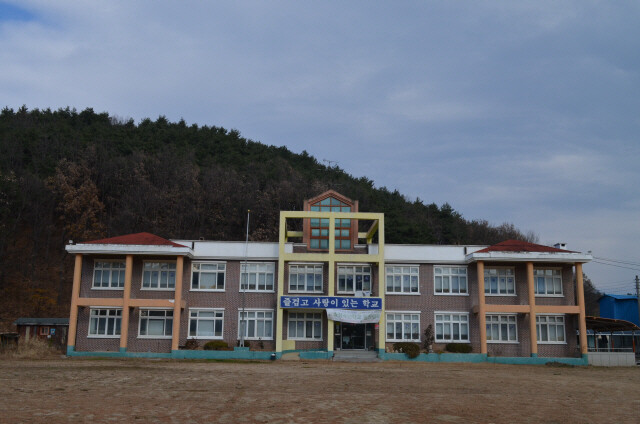
Gangwon Province, South Korea – Faced with a rapidly escalating number of school closures due to a sustained decline in the school-age population, the Gangwon Provincial Office of Education has announced a significant shift in its policy concerning the management of these properties. Departing from a previous focus on internal utilization, the education authority will now aggressively pursue the sale of its burgeoning inventory of closed school assets.
An investigation by this publication has revealed the stark reality of demographic shifts in the region. Since 1981, a staggering 489 schools across Gangwon Province have been shuttered. While 286 of these properties have been either sold (247), exchanged (19), or returned to their previous owners (20), a substantial 203 remain under the purview of the education office. Of these, 144 are currently in some form of use, with 116 under lease agreements and a mere 28 being utilized directly by the provincial education authorities. Alarmingly, 59 of these former educational institutions remain vacant and unutilized.
The sheer volume of closed schools has placed a considerable burden on the Gangwon Provincial Office of Education in terms of management and potential utilization. Recognizing the limitations of its internal resources and the pressing need to revitalize affected communities, the office has made a decisive move towards active disposal of these assets. Under the new strategy, 30 of the 59 currently unused school properties are earmarked for lease to local government entities or private businesses, while an additional 26 schools are slated for outright sale. The remaining three properties are intended for self-utilization by the education office for purposes yet to be fully disclosed. To facilitate smoother transactions, the office has also pledged to support the demolition of school buildings deemed to be in poor condition or of limited usability, thereby enhancing the appeal of the land itself.
This policy shift represents a notable departure from the approach adopted following the appointment of Superintendent of Education Shin Kyung-ho in July 2022. Initially, the focus was on finding internal solutions for the reuse of these vacant educational facilities. However, the relentless wave of school closures each year, leaving an increasing number of properties without viable repurposing plans, has compelled the office to prioritize the economic benefits that could be realized through the sale of these assets. The overarching goal is to inject new dynamism into the local economies of regions that have witnessed the closure of their schools, often a significant community anchor.
For the current year, 13 specific closed school properties have been identified for immediate sale. Geographically, these are distributed as follows: three in Inje County, two each in the cities of Taebaek and Pyeongchang, and Hoengseong County, and one each in the cities of Samcheok and Yangyang, and the counties of Hongcheon and Jeongseon. This geographically dispersed approach suggests a province-wide effort to address the issue.
In a parallel effort to optimize the utilization of these former educational sites, the Gangwon Provincial Office of Education is actively pursuing the inclusion of special provisions within the Gangwon Special Self-Governing Province Act. This legislative initiative aims to create a more streamlined and अनुकूल framework for the repurposing of closed schools. To this end, a dedicated 'Task Force for Promoting Special Cases for Closed School Utilization' has been recently established, with its inaugural meeting anticipated imminently. The latter half of the year will see the task force undertaking comprehensive surveys and engaging in discussions with local government bodies to formulate effective legal measures that can expedite the reuse of these properties.
Furthermore, the education office has emphasized its commitment to the ongoing management and oversight of closed schools that have been either leased or sold. A rigorous schedule of on-site inspections will be implemented, with bi-annual checks for leased and sold properties, and monthly visits by local education support offices to those that remain unused. To safeguard against inappropriate repurposing, the office will also incorporate specific clauses into lease and sale agreements that allow for the termination of contracts if the land is used for purposes deviating from the originally intended use, ensuring that the redevelopment aligns with community needs and regional development plans.
A spokesperson for the Gangwon Provincial Office of Education articulated the rationale behind this strategic shift, stating, "We have redefined our policy direction for closed school properties to actively leverage these underutilized assets and establish them as a new benchmark for regional development. Moving forward, we will actively pursue the sale of closed schools to achieve a more efficient reallocation of educational resources and explore utilization strategies in close collaboration with local communities."
In a significant development on the same day, the Gangwon Provincial Council passed the 'Ordinance on the Management and Utilization of Closed School Properties under the Special Account for Education Expenses of Gangwon Special Self-Governing Province,' a bill proposed by Assemblyman Eom Ki-ho. This legislative endorsement provides a crucial framework for the education office's new policy and underscores the political will to address the challenges posed by the increasing number of closed schools in the province. The synergy between the executive and legislative branches suggests a unified approach to transforming these dormant educational spaces into catalysts for local economic and social revitalization.
[Copyright (c) Global Economic Times. All Rights Reserved.]




























